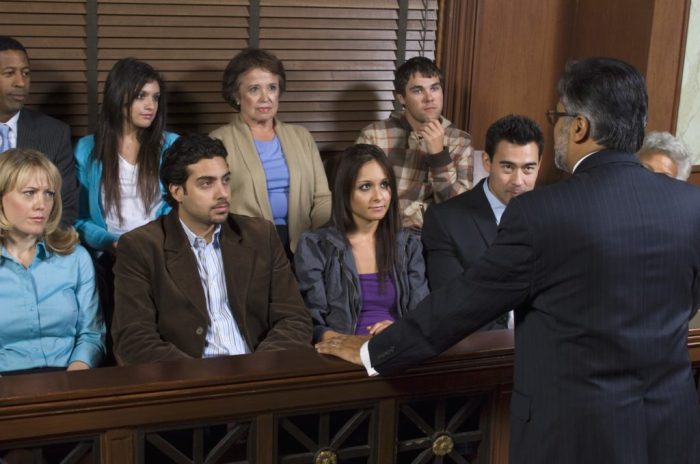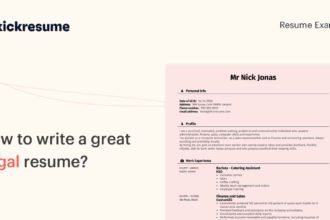abogados diner law sets the stage for this enthralling narrative, offering readers a glimpse into a story that is rich in detail and complexity. This area of law plays a crucial role in the legal system, addressing various issues that arise in diner operations, from contracts to disputes. Understanding its principles helps navigate the intricate world of legal relations within this industry.
The significance of diner law extends beyond basic legal frameworks; it encompasses a variety of cases that attorneys handle, showcasing notable examples that highlight both the challenges and triumphs within this field. Whether it’s a dispute over a lease agreement or a personal injury claim, the implications of diner law are far-reaching.
Overview of Diner Law
Diner law represents a specialized field within the broader legal system, focusing specifically on the rights and responsibilities of patrons and businesses in the dining industry. The principles of diner law are crucial for maintaining fairness and accountability in interactions between diners and restaurant establishments. This area of law ensures that consumers can enjoy their dining experiences without fear of negligence or malpractice, while also safeguarding the interests of restaurant owners.Diner law encompasses various types of cases, primarily revolving around issues of liability, food safety, consumer rights, and contract disputes.
The legal principles guiding diner law provide a framework for resolving these disputes, addressing everything from slip-and-fall incidents in restaurant settings to the adequacy of food labeling and allergens.
Types of Cases in Diner Law
The realm of diner law includes a range of case types, each with its unique legal implications and outcomes. Understanding these categories is essential for both diners and restaurant operators. Notable categories include:
- Personal Injury Claims: These cases often arise from accidents occurring on restaurant premises, such as slips and falls due to wet floors or unsafe conditions.
- Foodborne Illness Cases: Legal actions taken by consumers who suffer illnesses due to contaminated food can lead to significant liability for restaurants if negligence is proven.
- Discrimination Claims: Diners may file complaints against establishments for discriminatory practices, such as refusing service based on race, gender, or other protected characteristics.
- Breach of Contract: Disputes can occur when service agreements are not honored, leading to litigation over reservations, catering contracts, or service expectations.
Notable Diner Law Cases
The following examples highlight significant diner law cases that have shaped legal precedents and public awareness:
- Case of the Hot Coffee: In 1994, Stella Liebeck famously sued McDonald’s after suffering third-degree burns from spilled coffee. The jury awarded her $2.86 million, underscoring the importance of proper food handling and consumer safety.
- Chipotle and Food Safety: Following a series of foodborne illness outbreaks linked to Chipotle restaurants in 2015, the company faced multiple lawsuits. This led to changes in food safety protocols and increased scrutiny of food preparation practices across the industry.
- Color Discrimination Case: In a 2018 case, a Black couple sued a restaurant for refusing them service based on their race. The settlement not only provided compensation but also prompted the restaurant to adopt anti-discrimination training for its staff.
“Diner law plays a vital role in ensuring justice and accountability within the food service industry, protecting both consumers and businesses alike.”
Role of Attorneys in Diner Law
Attorneys specializing in diner law play a crucial role in navigating the intricate legal framework surrounding the operation of diners. Their responsibilities span various aspects of the law, ensuring compliance and protecting the rights of diner owners and patrons alike. By understanding the complexities of this niche legal field, attorneys provide essential guidance that contributes to the success and safety of diner establishments.Attorneys in diner law are tasked with a range of crucial responsibilities, from ensuring compliance with health and safety regulations to addressing employment law issues.
Their duties also include negotiating contracts with suppliers, advising on liability matters, and representing clients in disputes. The diverse nature of diner operations demands that attorneys possess a thorough understanding of both general business law and specific regulations affecting the food service industry.
Responsibilities and Duties of Attorneys Specializing in Diner Law
The duties of attorneys in diner law encompass a wide array of functions essential to the smooth operation of a diner. These include:
- Compliance Oversight: Attorneys ensure that diners adhere to local, state, and federal regulations, including health codes and zoning laws.
- Contract Negotiation: They assist in drafting and negotiating contracts with vendors, suppliers, and service providers to secure the best terms for their clients.
- Litigation Support: In case of disputes, attorneys represent diner owners in court, navigating the complexities of litigation.
- Licensing and Permits: Attorneys help clients obtain necessary licenses and permits, ensuring all legal requirements are met before opening or operating.
- Employee Relations: They advise on employment law matters, including employee rights, wage disputes, and workplace safety.
Preparation of Diner Law Cases for Trial
When preparing a diner law case for trial, attorneys follow a meticulous process to ensure they present a strong case. This preparation involves several key steps, including:
- Investigation: Attorneys conduct thorough investigations, gathering evidence, interviewing witnesses, and analyzing relevant documents to build a solid case foundation.
- Legal Research: They perform extensive legal research to identify applicable laws, precedents, and regulations that may influence the outcome of the case.
- Strategy Development: Based on the gathered information, attorneys develop a case strategy that Artikels the best approach for trial, including key arguments and potential counterarguments.
- Pre-Trial Motions: Attorneys may file pre-trial motions to resolve issues before the trial begins, which can include motions to dismiss or motions for summary judgment.
- Mock Trials: Conducting mock trials can help attorneys prepare their clients and refine their arguments, simulating the trial environment to anticipate potential challenges.
Key Skills and Qualifications for Attorneys in Diner Law, Abogados diner law
Attorneys practicing in diner law must possess specific skills and qualifications to effectively serve their clients. These include:
- Strong Negotiation Skills: The ability to negotiate effectively on behalf of clients is critical, particularly during contract discussions.
- Attention to Detail: Precision is vital in legal documentation and compliance matters, requiring attorneys to meticulously review every detail.
- Knowledge of Food Service Regulations: A comprehensive understanding of health codes, labor laws, and liquor licensing is essential in this specialized field.
- Litigation Experience: Experience in handling litigation ensures attorneys are prepared to represent clients effectively in court.
- Communication Skills: Effective communication is crucial for advising clients and advocating in legal proceedings.
Common Legal Issues in Diner Law: Abogados Diner Law
In the bustling world of diners, a variety of legal challenges frequently arise that can significantly impact both owners and patrons. Diner law encompasses numerous legal issues, ranging from employment disputes to health and safety regulations. Understanding these common issues is essential for anyone involved in the diner industry, as they can lead to complex litigation and financial ramifications.Legal disputes in diner law can emerge from various sources, and they often have far-reaching implications for the parties involved.
Recognizing the potential complications in these cases is vital for effective risk management and resolution. Below is a detailed overview of common legal issues that diners may encounter.
Employment Law Issues
Employment-related disputes are among the most prevalent legal issues in diner law. These issues can range from wage disputes to wrongful termination claims. The nature of employment law within the diner context often leads to complex litigation scenarios.
When it comes to personal matters, finding experienced dinner law abogados is crucial. These lawyers focus on family-related legal issues, offering guidance and support during challenging times. Their role is to navigate the intricacies of family law, ensuring that clients are well-informed and their interests are protected throughout the process.
-
Wage and Hour Claims:
Many diners face complaints regarding unpaid wages, overtime violations, and tips distribution among staff. Such claims can result in costly settlements or litigation.
-
Discrimination and Harassment:
Employees may claim workplace discrimination based on race, gender, or other protected characteristics. Effective measures must be implemented to prevent such issues.
-
Workplace Safety Violations:
The Occupational Safety and Health Administration (OSHA) sets standards that diners must comply with to ensure employee safety, and violations can lead to significant penalties.
Health and Safety Regulations
Health and safety regulations are critical to the diner industry, as they directly affect customer wellbeing and operational legality. Violation of these regulations can lead to severe consequences for business owners.
-
Food Safety Violations:
Diners must adhere to strict food safety guidelines. Non-compliance can result in health code violations and potential lawsuits from affected patrons.
-
Sanitation Issues:
Failure to maintain proper sanitation standards can lead to health department inspections, fines, and negative publicity that can harm the diner’s reputation.
-
Accidents and Injuries:
Slip and fall accidents are common in dining establishments. If a patron is injured on the premises, the diner may face liability claims that can be costly and damaging to its image.
Contractual Disputes
Diners often enter into various contracts, whether with suppliers, vendors, or landlords. Disputes may arise from these agreements, leading to potential litigation.
-
Supplier Agreements:
Disagreements regarding the quality or delivery of food products can lead to claims against suppliers or vice versa, affecting the diner’s operations.
-
Lease Issues:
Many diners lease their spaces. Issues such as rent increases or lease violations can become contentious and may require legal intervention.
-
Franchise Agreements:
For franchised diners, disputes can arise concerning franchise fees, operational standards, and brand adherence, which may lead to legal actions if not resolved amicably.
Intellectual Property Concerns
Diners may also face challenges related to intellectual property, particularly concerning branding and advertising.
For those navigating complex legal battles, having a skilled abogado kubosh can make a significant difference. These attorneys specialize in various legal issues, ensuring that clients receive the best representation. Their expertise not only helps in understanding the legal landscape but also in effectively strategizing the case for favorable outcomes.
-
Trademark Infringement:
Protecting a diner’s brand is crucial. If another business uses a similar name or logo, it can lead to legal battles over trademark rights.
-
Copyright Issues:
Use of copyrighted materials in marketing or decor can lead to infringement claims, necessitating proper licensing and permissions.
-
Recipe Protection:
While recipes cannot be patented, diners must be cautious about trade secrets and how they protect proprietary food preparations from competitors.
The implications of these legal issues can be significant, affecting the financial stability and reputation of the diner. Owners must proactively address and manage these potential complications to ensure compliance, safeguard their business, and maintain a positive relationship with employees and patrons.
The Process of Hiring a Diner Law Attorney
Finding the right diner law attorney is crucial for navigating the complexities of legal issues in the restaurant industry. The selection process can be daunting, especially with various factors to consider, such as expertise, experience, and compatibility. A systematic approach will help ensure that you choose an attorney who not only understands diner law but also aligns with your unique needs.
Step-by-Step Guide to Choosing the Right Attorney
Selecting a diner law attorney involves a careful assessment of potential candidates. Below are steps to guide you through the hiring process:
- Identify Your Legal Needs: Determine the specific legal issues you are facing, such as contract disputes, compliance with health regulations, or employment matters. This will help narrow your search to attorneys who specialize in those areas.
- Research Potential Attorneys: Utilize online resources, such as legal directories and bar association websites, to find qualified diner law attorneys. Pay attention to their specializations and client reviews.
- Check Credentials and Experience: Review the attorney’s educational background, years of practice, and specific experience in diner law. Look for attorneys who have successfully handled similar cases.
- Schedule Initial Consultations: Arrange meetings with a shortlist of attorneys. This provides an opportunity to assess how well they understand your situation and their approach to solving your legal issues.
- Evaluate Compatibility: Consider how comfortable you feel with the attorney during the consultation. Effective communication and a good rapport are essential for a successful attorney-client relationship.
- Discuss Fees and Payment Structures: Inquire about their fee structures, whether they charge hourly rates, flat fees, or contingency fees, and ensure they align with your budget.
- Make Your Decision: After considering all the factors, choose the attorney who best meets your needs and with whom you feel most confident to work.
Evaluating Expertise and Experience
Assessing the expertise of potential diner law attorneys is key to making an informed decision. Here are important aspects to consider:
Experience in diner law comes from dealing with real-world issues and navigating legal intricacies specific to the restaurant industry.
- Track Record of Success: Look for attorneys who have a proven history of successful outcomes in diner law cases. Ask them to provide examples of cases similar to yours that they have handled successfully.
- Specialization: Ensure the attorney specializes in diner law rather than having a general practice. Specialization often means more in-depth knowledge of the relevant laws and regulations.
- Continuing Education: Attorneys who engage in ongoing education or participate in diner law seminars demonstrate their commitment to staying updated on industry trends and legal changes.
- Client Testimonials: Seek feedback from previous clients regarding their experiences with the attorney. Positive testimonials can provide insights into an attorney’s effectiveness and client relations.
Questions to Ask During Initial Consultations
Asking the right questions during initial consultations can reveal valuable information about the attorney’s capabilities and approach. Consider the following inquiries:
The effectiveness of an attorney-client relationship significantly influences the outcome of legal proceedings in diner law.
- What is your experience with diner law and related cases? Understanding their background in this specific area will help gauge their level of expertise.
- How do you approach cases like mine? This question can provide insights into their strategic thinking and methods for handling similar legal issues.
- What are your typical fees, and do you offer any payment plans? Clarity about fees will help you assess whether their services fit within your budget.
- Can you provide references from past clients? Talking to former clients can offer additional perspectives on the attorney’s performance and reliability.
- What is your communication style and availability? Ensure that their communication methods align with your preferences for a smoother working relationship.
Resources and Support for Diner Law Issues

Individuals facing challenges related to diner law often require a variety of resources to navigate their legal concerns effectively. From educational materials to community support systems, numerous options are available to assist those in need. Understanding these resources can empower individuals and promote informed decision-making in the complex landscape of diner law.
Helpful Resources for Diner Law Challenges
Access to reliable information and assistance is crucial for anyone encountering issues in diner law. Below is a list of valuable resources that can provide essential support:
- Legal Aid Organizations: Numerous non-profit organizations provide free or low-cost legal assistance to individuals facing diner law disputes. These entities often offer consultations, legal representation, and educational workshops.
- State Bar Associations: Most state bar associations have resources dedicated to diner law, including directories of qualified attorneys and informational guides that Artikel legal rights and obligations.
- Online Legal Services: Platforms like LegalZoom and Rocket Lawyer offer an array of legal documents and advice tailored to diner law issues, making legal assistance more accessible to the general public.
- Local Chamber of Commerce: Many local chambers provide resources and networking opportunities for diner owners and operators, which can be beneficial in understanding local regulations and laws.
- Consumer Protection Agencies: These agencies can assist individuals who believe their diner rights have been violated, offering guidance on how to file complaints or seek restitution.
Support Group Programs for Diner Law Concerns
Support groups play a vital role in providing emotional and practical support to those facing diner law issues. A structured program can help individuals connect and share their experiences. Here is an Artikel of a potential program for support groups:
- Monthly Meetings: Regular gatherings where participants can discuss their challenges, share successes, and exchange resources relevant to diner law.
- Guest Speakers: Inviting attorneys specializing in diner law to speak about pertinent issues, recent changes in legislation, and strategies for overcoming common challenges.
- Workshops: Organizing skill-building workshops focused on legal literacy, helping individuals understand their rights, the legal process, and how to effectively communicate with legal professionals.
- Networking Opportunities: Creating a forum for participants to connect with each other and build a supportive community including potential partnerships or collaborations.
- Online Support Forum: Establishing an online platform where individuals can seek advice and share knowledge, thus extending support beyond physical meetings.
Community Initiatives for Public Education on Diner Law Rights
Raising awareness about diner law rights within the community is essential for fostering an informed public. Various initiatives can be undertaken to educate individuals about their rights and responsibilities in the diner industry:
- Community Workshops: Hosting educational workshops in local community centers to inform diner owners and patrons about their rights and relevant laws, helping to clarify legal obligations.
- Informational Campaigns: Launching campaigns through social media and local media outlets to disseminate critical information about diner law rights, including promotional flyers and public service announcements.
- Partnerships with Educational Institutions: Collaborating with universities or vocational schools to develop curricula focused on diner law, allowing students and community members to gain practical knowledge.
- Resource Distribution: Creating easy-to-understand pamphlets and brochures outlining diner law rights and available support resources, distributing them in various community locations such as libraries and local government offices.
- Participation in Local Events: Setting up booths and informational tables at local fairs, markets, or festivals where community members can learn about diner law issues and receive guidance.




